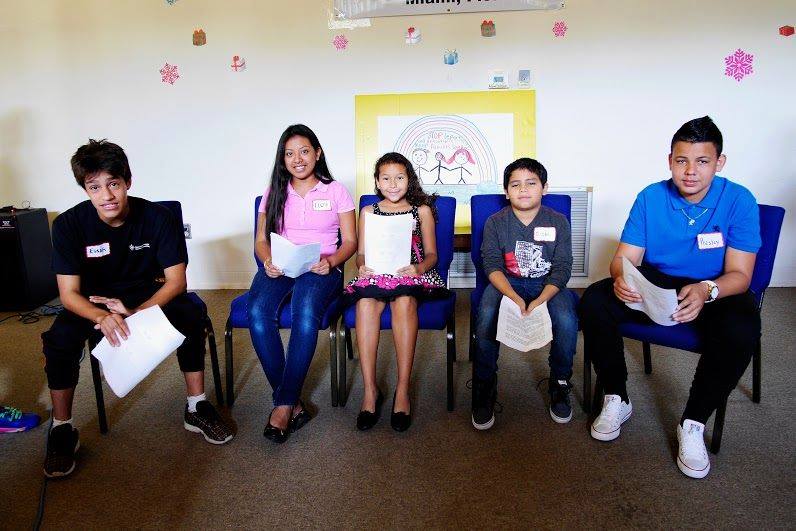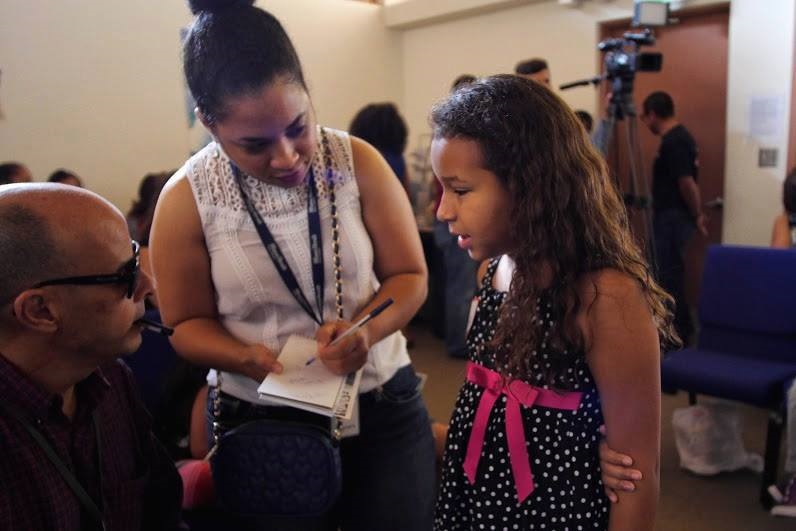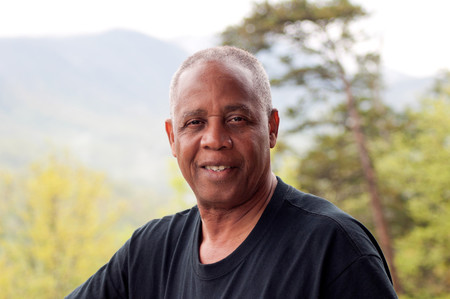
In Florida, AFSC works with young people to share their stories and speak out for humane immigration policies in their schools and communities. Miami / AFSC
This summer, the Trump administration ramped up immigration raids in cities across the U.S., separating families and communities and further fueling fear among immigrants. Here in Florida and communities around the country, AFSC often hears from panicked parents who worried about bringing their children to school, fearing they'd get picked up by Immigration and Customs Enforcement (ICE) agents on the way.
Nationwide, several school districts have resisted these aggressive immigration enforcement policies, passing resolutions to protect their students against immigration raids. That includes two school districts in Florida—Miami-Dade County and Broward County—which took these steps in 2017, not long after President Trump took office.
These school board actions were the result of months of advocacy by community organizations and individuals—everyday people who refused to accept policies that tear families apart.
Here are some key lessons from AFSC's work on these resolutions in Florida, which could inform your community's efforts to protect students and families:
1. Know that change is possible even in challenging political environments.

Even if you live in a city or county that has enacted anti-immigrant policies, don't assume your school board agrees with them.
Miami-Dade County's School Board passed its resolution just two months after the county's mayor announced a policy change that essentially abandoned the county's status as a sanctuary for immigrants. And several school districts in Pennsylvania, Texas, California, Colorado, and other states have enacted formal measures to protect undocumented students.
2. Do your research.
Find out what your school district's current policies and practices are to protect immigrant children and their families. If you can't find written policies, your local school board representative should be able to help you.
In Broward County, the school board voted unanimously to designate itself an "inclusive, safe, and welcoming district" for all students, regardless of immigration status, religion, or country of origin.
- prohibits ICE agents from setting foot on school campuses.
- keeps school staff from asking about a student's immigration status.
- requires that ICE requests for information be directed to the school district attorney’s office.
- offers students and families counseling, Know Your Rights presentations, and support in gaining access to college.
- creates a "Safe Place Plan" to help families prepare in case a student's parent or guardian is taken away by ICE.
A week after Broward passed this resolution, Miami-Dade County's school board followed suit, voting to strengthen its protections for immigrant students.
Research resolutions that other school boards have passed across the country that could serve as a model for your district. Here's a good place to get started.
3. Build diverse coalitions.
Research community groups, organizations, or coalitions that may already be organizing and lobbying the school board to pass a resolution to ensure that schools are safe and welcoming for all students. Connect with those groups, and see how you can support their efforts.
If there aren't any organized efforts in your community, work with a range of groups to build a coalition—immigrant families in your district; your PTA association; school teachers, administrators, and staff; community organizations; and congregations.
Here in Florida, AFSC is part of the Florida Immigrant Coalition, which was key to the success of both resolutions. School board members also became critical allies. In Broward County, for example, board member Robin Bartleman sponsored and championed the resolution and helped convince indecisive board members to support the measure.
4. Put affected students and their families front and center in your efforts.
The people who are actually affected by the policies we're working on should play a lead role in our advocacy efforts.
School families are a vital part of our Florida coalition. Families took part in planning efforts; testified at school board meetings; emailed, called, and met with board representatives; and urged other community members to make their voices heard, as well.
We also ensure that young people have opportunities to step up as leaders in this advocacy work. One of our most visible and effective spokespeople is Jasmine Lopez, a 10-year-old student whose father is undocumented.
Watch her testimony in front of the Miami-Dade school board:
5. Use every tool and opportunity to advocate.
Try to reach everyone you can in your community to build support. Talk to teachers, principals, school staff, board representatives, and your district superintendent. Ask students and their families to write letters to school board members, which can be collected in classes. Have neighbors host letter-writing parties in their homes. Host a community forum so people can learn more about the issue and how they can help.
If you're comfortable, reach out to the media. Write letters to the editor of your local newspaper, or urge its editorial board to support a resolution.
Be open, loud, and clear in your beliefs that schools should be safe zones for children and their families. In addition to persuading your school board, you're also communicating to immigrant families—particularly those who are afraid right now—that you are standing with them.
6. Don’t settle for symbolic or watered-down policies that aren’t effective.
When our coalition first proposed a safe-zone resolution in both Broward and Miami-Dade Counties, we met resistance from some school board representatives. In Miami-Dade, some initially suggested that instead of passing a comprehensive resolution, the board simply issue a statement about loving and welcoming all children—a symbolic gesture that would not have had any political impact.
Community members pushed for more. In the end, we achieved our goal of passing resolutions that will help make our schools safe, inclusive places where immigrant students and their families know they will be protected and supported—and you can, too!
More resources:
Watch our webinar recording: "Creating sanctuary policies in cities and schools."
Lis-Marie Alvarado is AFSC's community organizing coordinator, and Paul-Andre Mondesir is AFSC's Haitian community social advocate in Miami.
